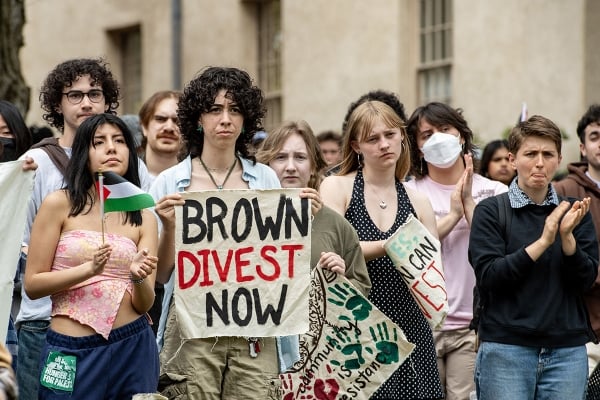Brown University Trustee Resigns in Protest Over Divestment Vote
In a shocking turn of events, a trustee at Brown University has resigned in protest over a recent vote by the university’s board of trustees to divest from fossil fuels. The decision, which was made in response to growing pressure from student activists and environmental groups, has sparked controversy and division within the university community.
The trustee, whose identity has not been disclosed, cited concerns over the economic impact of divestment on the university’s endowment as the main reason for their resignation. They argued that divesting from fossil fuels would place undue financial strain on the university and could jeopardize its long-term financial stability.
However, supporters of the divestment vote argue that investing in fossil fuels is not only financially risky but also morally irresponsible. They point to the devastating effects of climate change caused by the burning of fossil fuels and argue that universities have a responsibility to divest from industries that contribute to environmental destruction.
The decision to divest from fossil fuels at Brown University is part of a broader trend among universities and other institutions to take a stand against the fossil fuel industry. In recent years, a growing number of universities, foundations, and other organizations have divested from fossil fuels in an effort to combat climate change and promote sustainable investing.
While the trustee’s resignation has caused a stir at Brown University, it has also sparked a larger conversation about the role of universities in addressing climate change and promoting sustainable practices. As the effects of climate change become increasingly apparent, it is likely that more institutions will come under pressure to divest from fossil fuels and take a stand on environmental issues.
Ultimately, the resignation of the trustee at Brown University serves as a reminder of the complex and often contentious nature of the divestment debate. While some argue that divesting from fossil fuels is necessary to combat climate change, others believe that it is not a practical or effective solution. As universities grapple with these difficult decisions, it is clear that the debate over divestment will continue to be a hot-button issue on college campuses and beyond.



